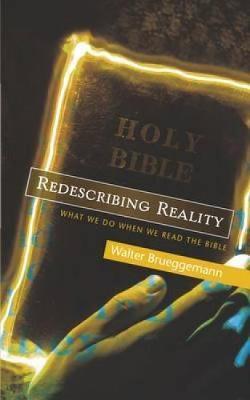
Walter Brueggemann is one of the worlds leading scholars in biblical interpretation and the Old Testament.
In this book, he reflects on what the Church does when it reads the Bible. This never happens in a vacuum but is always a highly political act of reinterpreting and at times unmasking the dominant forces in the world in which we live. Brueggemann writes beautifully and accessibly and bridges the gap between church and academia.
1 Introduction: That the World May Be Redescribed
2 Setting the Stage: The Churchs Task of Interpretation
3 Steps in Interpretation: Jeremiah 5:1417 as Example 30
4 Four Characters, a Grudge, and the Place of God: Genesis 50:1521
5 From Problem to Resolution in Four Scenes: First Samuel 1
6 Truthful Witnesses, Capacity for the Future, and Responsibility: Isaiah 43, Habakkuk 3, Psalm 44
7 The Absence of God: Texts that Refuse to Be Explained Away
8 Concerning Secondary Resources
9 Conclusion: Interpretive Outcomes
In this book, he reflects on what the Church does when it reads the Bible. This never happens in a vacuum but is always a highly political act of reinterpreting and at times unmasking the dominant forces in the world in which we live. Brueggemann writes beautifully and accessibly and bridges the gap between church and academia.
1 Introduction: That the World May Be Redescribed
2 Setting the Stage: The Churchs Task of Interpretation
3 Steps in Interpretation: Jeremiah 5:1417 as Example 30
4 Four Characters, a Grudge, and the Place of God: Genesis 50:1521
5 From Problem to Resolution in Four Scenes: First Samuel 1
6 Truthful Witnesses, Capacity for the Future, and Responsibility: Isaiah 43, Habakkuk 3, Psalm 44
7 The Absence of God: Texts that Refuse to Be Explained Away
8 Concerning Secondary Resources
9 Conclusion: Interpretive Outcomes



